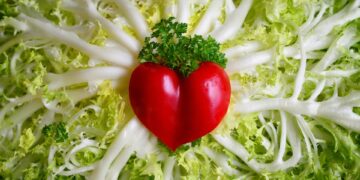10 Expert Tips for Achieving Lasting Weight Loss with a Balanced Diet
Weight loss can be a challenging journey, but with the right approach and mindset, it is possible to achieve lasting results. One of the most important aspects of successful weight loss is maintaining a balanced diet. A balanced diet provides your body with the nutrients it needs to function properly while helping you manage your calorie intake. Here are 10 expert tips to help you achieve lasting weight loss with a balanced diet:
1. Set Realistic Goals
Before embarking on your weight loss journey, it is important to set realistic goals for yourself. Aiming to lose a large amount of weight in a short period of time is not only unhealthy but also unsustainable. Instead, focus on making small, gradual changes to your diet and lifestyle that you can maintain in the long run.
2. Eat a Variety of Nutrient-Rich Foods
A balanced diet should include a variety of nutrient-rich foods such as fruits, vegetables, whole grains, lean proteins, and healthy fats. By eating a diverse range of foods, you ensure that your body receives all the essential nutrients it needs to function optimally.
3. Control Portion Sizes
Portion control is key to managing your calorie intake and achieving weight loss. Use measuring cups, food scales, or visual cues to help you accurately portion out your meals and snacks. Be mindful of serving sizes and try not to eat larger portions than necessary.
4. Limit Processed Foods and Added Sugars
Processed foods and added sugars are often high in calories and low in nutrients. By limiting your intake of these foods, you can reduce your overall calorie consumption and improve the quality of your diet. Opt for whole, unprocessed foods whenever possible.
5. Stay Hydrated
Drinking an adequate amount of water is essential for overall health and can also help with weight loss. Water helps flush out toxins, aids in digestion, and can help you feel full between meals. Aim to drink at least 8-10 glasses of water per day.
6. Plan Ahead
Meal planning and preparation can help you make healthier choices throughout the week and avoid impulse eating. Take some time each week to plan your meals, create a grocery list, and prepare snacks or meals in advance. This can help you stay on track with your weight loss goals.
7. Practice Mindful Eating
Mindful eating involves paying attention to your body’s hunger and fullness cues and eating without distractions. By slowing down and savoring your food, you can better appreciate the flavors and textures of your meals and prevent overeating.
8. Get Moving
Regular physical activity is an important component of any weight loss plan. Aim to incorporate at least 150 minutes of moderate-intensity exercise, such as brisk walking or cycling, into your weekly routine. Exercise not only helps burn calories but also improves your overall health and well-being.
9. Seek Support
Weight loss can be a challenging journey, and it can be helpful to seek support from friends, family, or a healthcare professional. Joining a support group or working with a registered dietitian or nutritionist can provide you with the guidance and motivation you need to reach your weight loss goals.
10. Practice Consistency
Consistency is key to achieving lasting weight loss with a balanced diet. Make healthy eating and regular exercise a routine part of your lifestyle, rather than a temporary fix. Remember that lasting changes take time, so be patient with yourself and stay committed to your goals.
Conclusion
Achieving lasting weight loss with a balanced diet requires dedication, commitment, and a willingness to make sustainable lifestyle changes. By following these expert tips and staying motivated, you can achieve your weight loss goals and improve your overall health and well-being. Remember to focus on progress, not perfection, and celebrate your successes along the way. With the right mindset and approach, you can achieve lasting weight loss and a healthier, happier you.














































